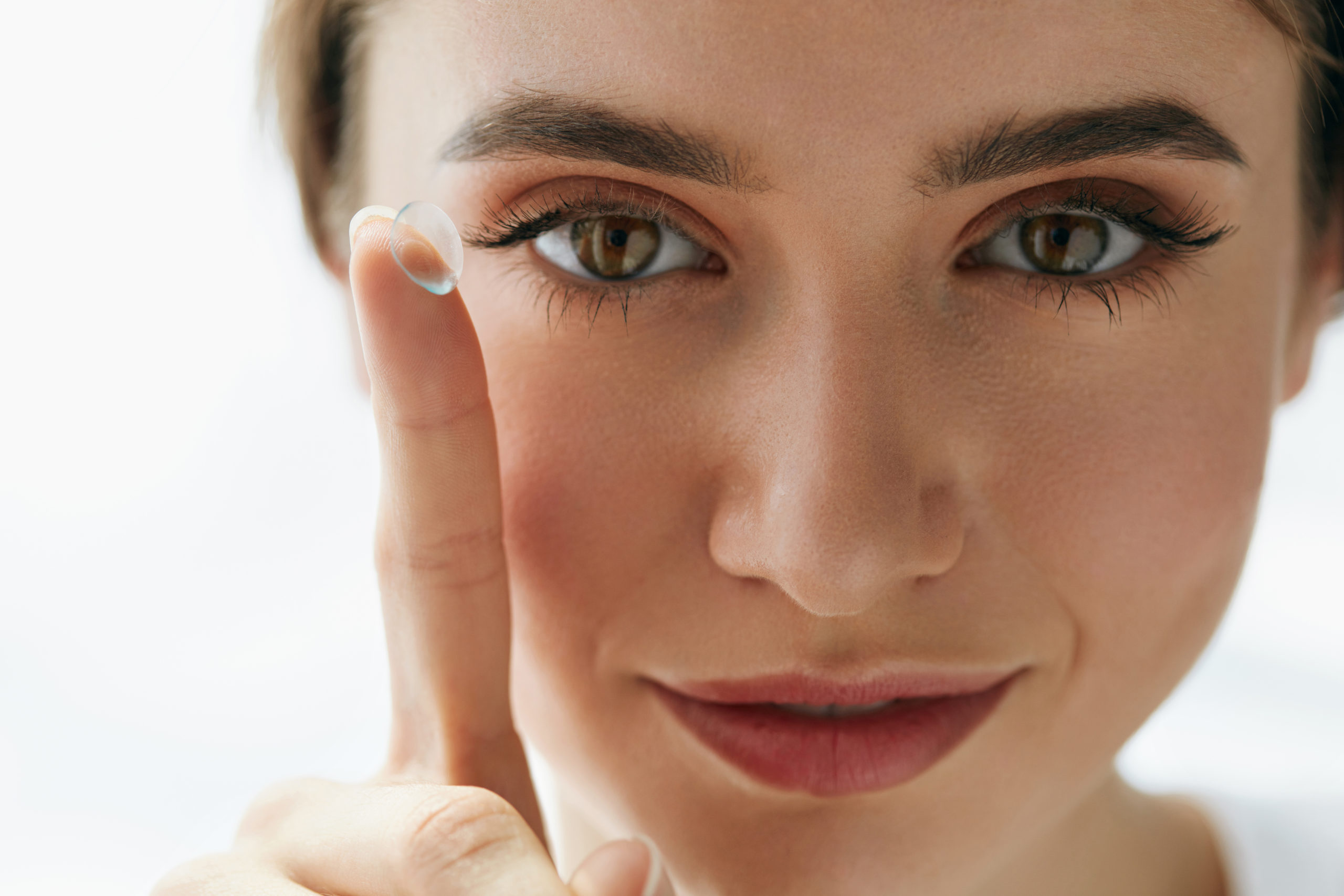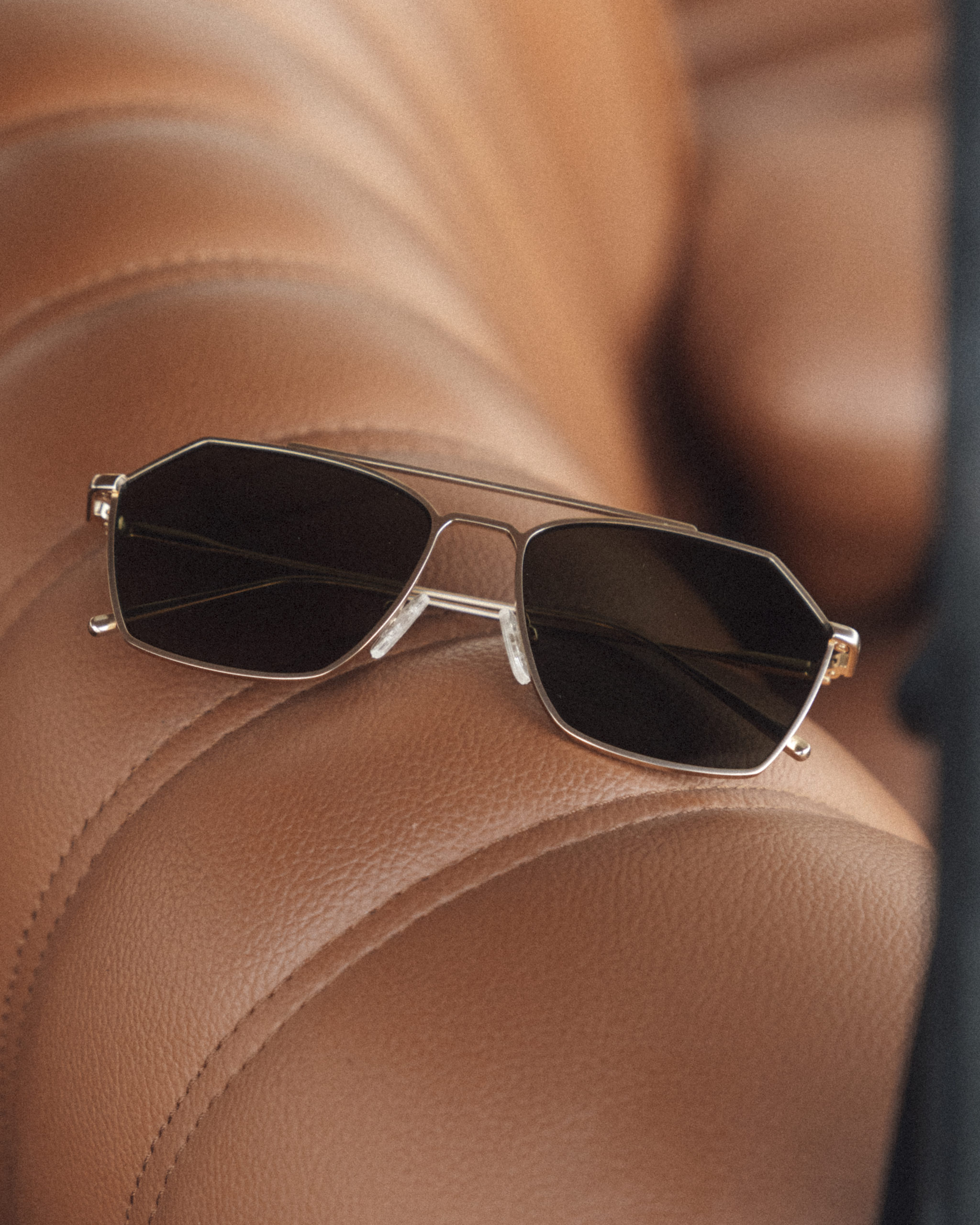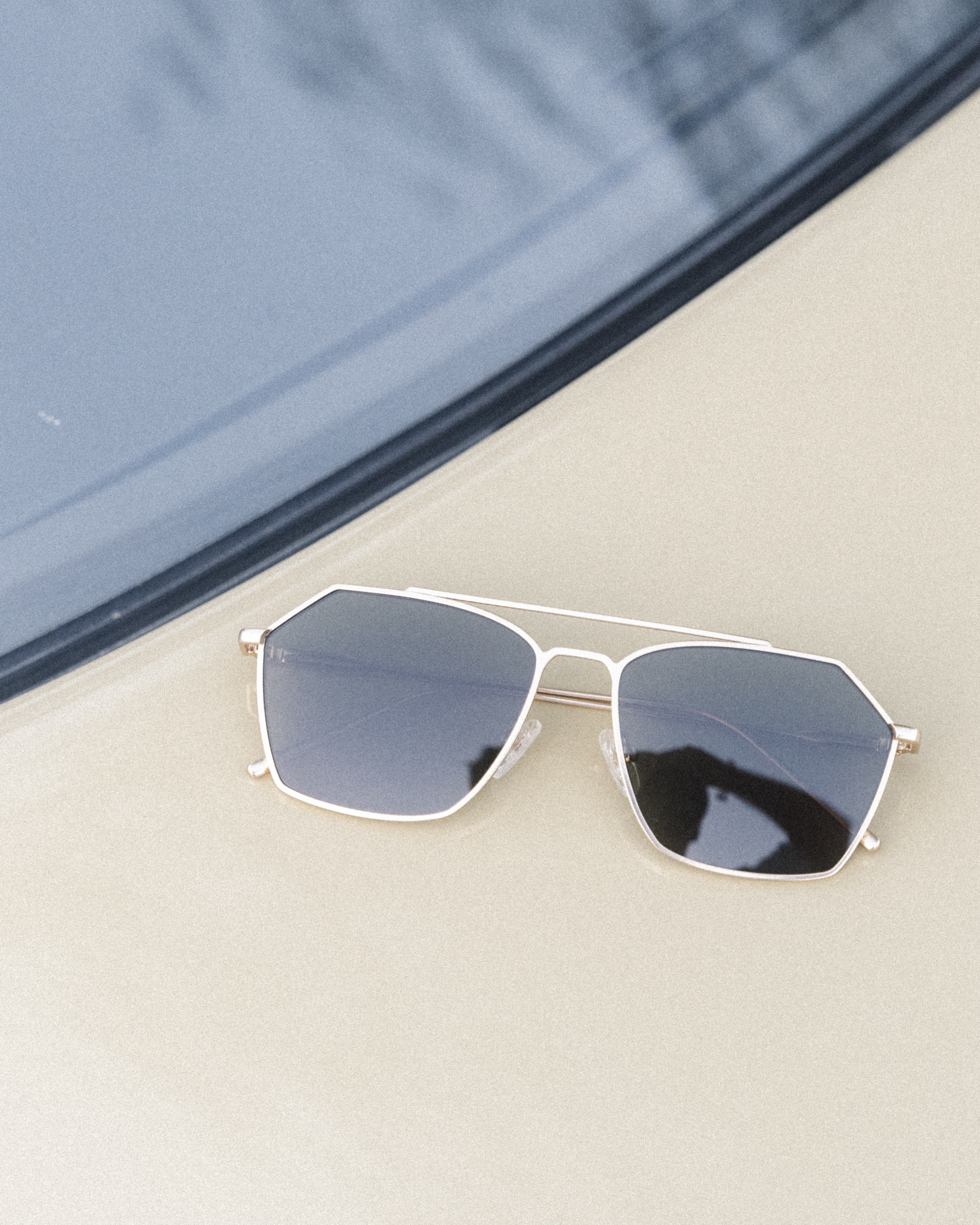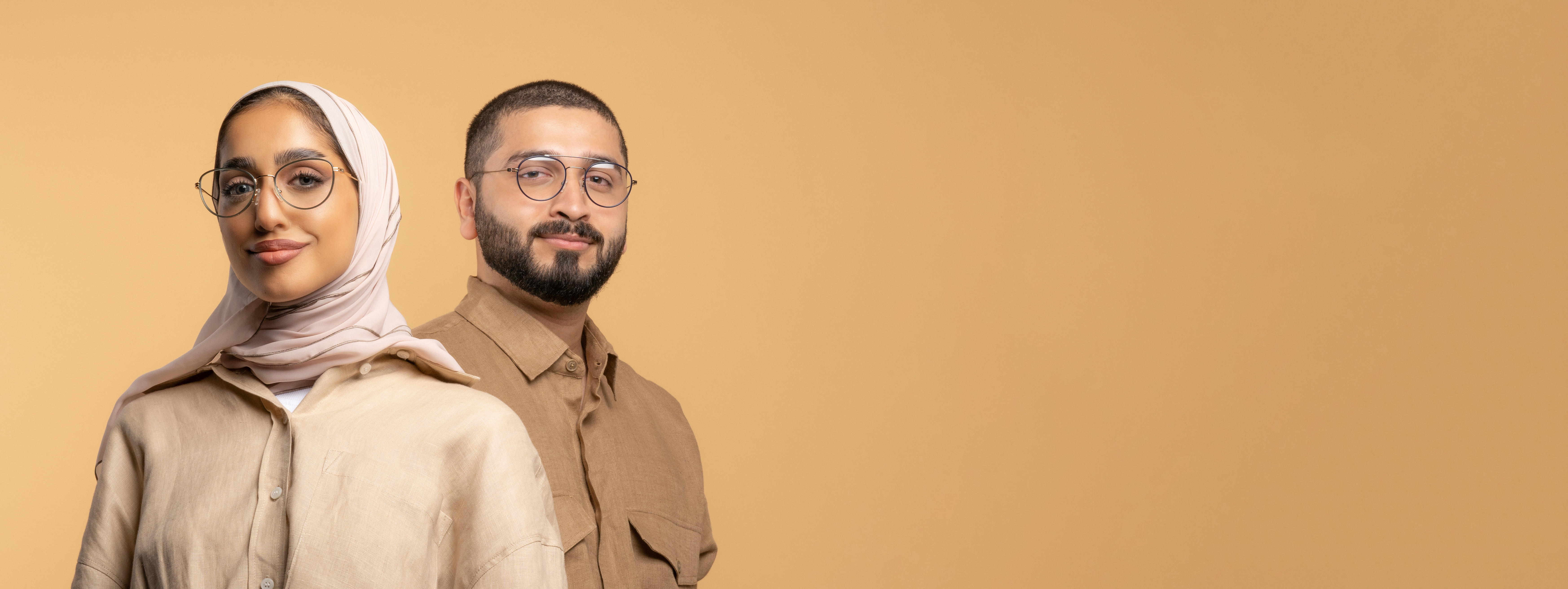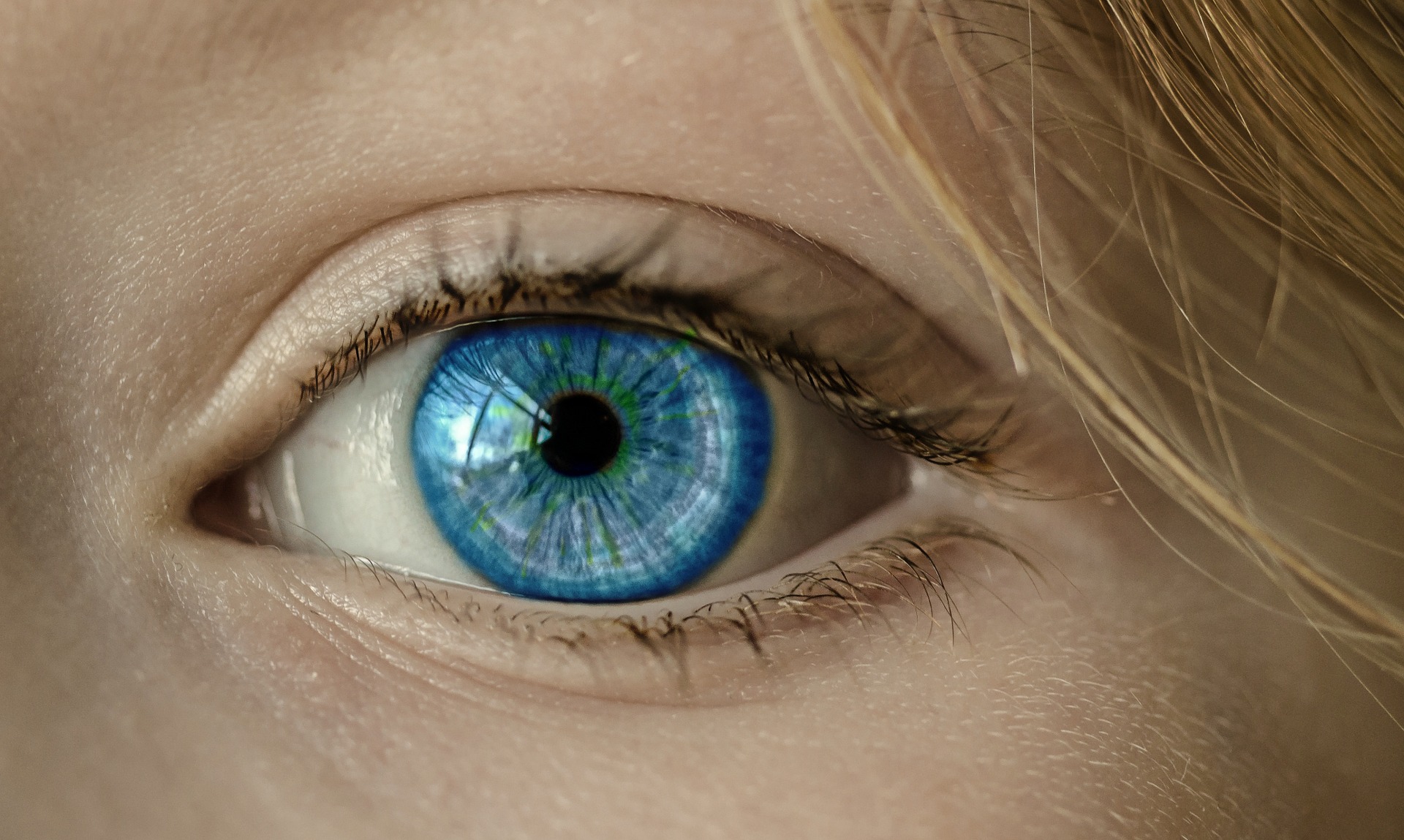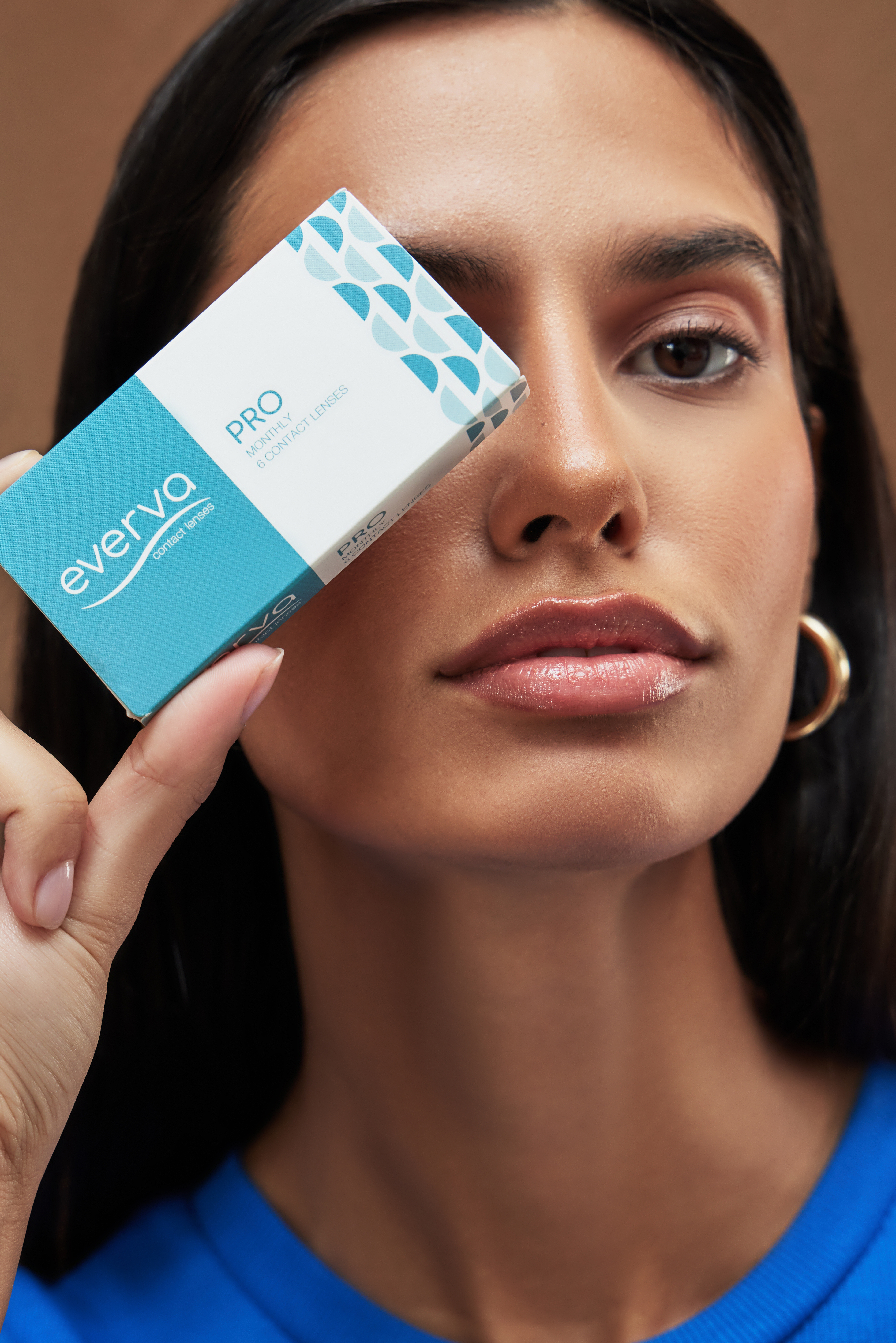How Often Should I Change My Contacts?
Understanding the importance of changing contact lenses regularly is vital for ensuring optimal eye health and vision clarity, whether you are an experienced wearer or new to vision correction. In this comprehensive guide, we will investigate various contact lens replacement schedules and offer essential advice for maintaining proper contact lens hygiene. Join us as we explore the realm of contact lenses and discover how to prioritize the best care for your eyes.
 Eyewa Total contact lenses (EYE00435-2)
Eyewa Total contact lenses (EYE00435-2)
Types of Contacts and When You Should Dispose Them?
1. Daily Disposable Contacts
Daily disposable contact lenses are designed for single-day use and subsequent disposal, ensuring utmost convenience and hygiene. Eliminating the need for cleaning or storage, these lenses significantly reduce the risk of eye infections and discomfort. If you have an active lifestyle or occasionally wear contacts, daily disposables are an excellent choice.
2. Weekly Disposable Contacts
Disposable contact lenses that can be worn for up to one week before replacing them are known as weekly disposables. It’s important to adhere to the replacement schedule advised by your eye care professional. These lenses are convenient to maintain and are available in different materials to accommodate various eye conditions.
3. Monthly Disposable Contacts
Monthly disposable contacts are designed to be worn daily for up to a month before discarding them. These lenses are a popular choice for those who wear contacts regularly. However, proper maintenance and hygiene practices are crucial to ensure comfortable and safe usage.
4. Extended Wear Contacts
Extended wear contacts are specially formulated for continuous wear, even while sleeping. The duration of wearing depends on the specific type and brand of lenses, ranging from a few days to a month. It is important to seek advice from your eye care specialist to ensure that extended wear lenses are a suitable option for your eyes. Additionally, make sure to adhere to the recommended replacement schedule.
 Woman holding a box of Everva Pro contact lenses (EYEWA1821)
Woman holding a box of Everva Pro contact lenses (EYEWA1821)
Contact Lens Hygiene and Care Tips
Regardless of the type of contact lenses you wear, maintaining excellent hygiene and following proper care tips is essential. Here are some valuable contact lens care tips to ensure the health of your eyes:
Wash Your Hands
Always wash your hands with soap and water before handling your contact lenses. This step helps prevent dirt and bacteria from transferring to your eyes.
Use Recommended Solutions
Follow your eye care professional’s advice on the appropriate cleaning and disinfecting solutions for your contacts. Avoid using tap water or saliva, as they may contain harmful microorganisms.
Clean and Rinse Properly
Gently rub your contacts with the recommended solution to remove debris and protein buildup. Rinse them thoroughly before storing or wearing them.
Replace Lens Cases Regularly
Contact lens cases can harbor bacteria, so it’s crucial to replace them every three months or as advised by your eye care professional.
Avoid Water Contact
Do not expose your contacts to water, as it can lead to contamination and the risk of infection.
Remove Lenses for Swimming
Swimming with contacts should be avoided due to the risk of eye infections from waterborne pathogens.
 Boxes of Everva PRO, PURE, and ELITE on display (Eyevera—1)
Boxes of Everva PRO, PURE, and ELITE on display (Eyevera—1)
Contact Lens Expiration and Safety Guidelines
Contact lenses come with an expiration date that is usually indicated on the packaging. It is essential to strictly adhere to this date, as wearing lenses past their expiration can result in various issues like discomfort, impaired vision, and higher chances of contracting eye infections. It’s essential to replace lenses promptly and not attempt to extend their usage beyond the recommended period.
If you experience any eye redness, irritation, pain, or vision changes while wearing contacts, remove them immediately and consult your eye care professional. Adhering to contact lens safety guidelines ensures your eye health remains uncompromised.
If you are looking for a wide range of high-quality contact lenses and eye care products, you should check out Eyewa. Eyewa can help you find the perfect contacts to suit your needs, ensuring comfortable and clear vision while prioritizing the health of your eyes.
 Boxes of Eyewa contact lenses on display (EYE00862-(1))
Boxes of Eyewa contact lenses on display (EYE00862-(1))
Frequently Asked Questions
1. What happens if I don’t change my contacts every month/day/week?
If you don’t change your contacts according to the recommended schedule, you risk compromising your eye health. Wearing contacts beyond their replacement period can lead to discomfort, blurred vision, and an increased risk of eye infections.
2. How long do monthly contacts last if you don’t wear them every day?
It is recommended to replace your monthly contact lenses every 30 days, regardless of how frequently you wear them. Regularly replacing monthly contacts is necessary to prevent discomfort and potential eye issues, as they tend to accumulate deposits and debris over time.
3. What happens if you never change contacts?
Failing to replace contact lenses regularly is a dangerous habit that can have negative effects on your eye health. Over time, contact lenses collect protein deposits, debris, and bacteria, resulting in discomfort, redness, and irritation. Continuing to use old contacts increases the chances of eye infections and potential harm to your cornea, ultimately impacting your vision in the future.
4. How long can you wear monthly contacts in a day?
The recommended wear time for monthly contacts is typically 10-12 hours per day. However, it’s essential to follow your eye care professional’s advice, as individual wearing schedules may vary based on your eye health and comfort level.
5. How often should you replace monthly contacts?
Monthly contacts should be replaced every 30 days, even if you don’t wear them every day. Regular replacement ensures that your lenses remain clean and free from accumulated deposits, which can cause discomfort and affect your vision quality.
6. What happens if you wear contacts past 30 days?
Not replacing monthly contacts as recommended can result in various problems. With time, contacts gather protein, lipid deposits, debris, and bacteria, leading to discomfort, dryness, and irritation. Moreover, the longer you wear expired contacts, the greater the chance of developing eye infections and other complications.
7. What happens if you wear old contacts?
Wearing outdated contact lenses can negatively impact your ocular health. As time passes, these lenses can gather debris, bacteria, and protein buildup, resulting in discomfort, irritation, and a heightened susceptibility to eye infections. Additionally, the aging process of contact lenses can lead to material degradation, reducing their capacity to deliver clear vision and potentially causing visual impairments.
8. What if I don’t wear my monthly contacts every day?
Replacing your monthly contacts every 30 days is crucial, regardless of your wearing frequency. Even when not in use, contact lenses can accumulate deposits and bacteria. Continuing to wear old contacts, even on an occasional basis, significantly increases the risk of eye infections and discomfort. Hence, ensuring regular replacement is imperative.
9. Do monthly contact lenses expire?
Yes, monthly contact lenses have an expiration date printed on the packaging. Expired contact lenses may not provide the same level of comfort and vision correction as fresh lenses, as the material can degrade over time.
10. How long can you keep contacts in solution when you’re not using them?
The duration for which you can store contacts in solution when not in use differs depending on the type of contact lenses and the specific solution used. Daily disposable contacts should be thrown away after each use, and you should use fresh solution whenever you store them. For weekly or monthly disposable contacts, remember to replace the solution in the contact lens case daily and get rid of any remaining solution.
11. Can you wear monthly contact lenses longer if you don’t wear them every day?
No, you should not wear monthly contact lenses longer than their recommended replacement schedule, even if you don’t wear them every day. Extended wear of monthly contacts increases the risk of eye infections and discomfort due to the buildup of protein and debris on the lenses.
12. How do you know when your contacts are expired?
Expired contacts may cause discomfort, reduced vision, or redness in the eyes. Always check the expiration date on the packaging before using new lenses.
13. What happens if you wear the same contacts for a year?
Wearing the same contacts for a year is not recommended. Over time, contacts accumulate protein and lipid deposits, as well as bacteria, leading to discomfort, irritation, and potential eye infections. The lenses’ material may also degrade, affecting their optical properties and causing vision problems.
 Ad promoting Layala from Eyewa featuring @THEHALA (Artboard 1-100
Ad promoting Layala from Eyewa featuring @THEHALA (Artboard 1-100
Understanding the importance of contact lens replacement and hygiene is essential for maintaining excellent eye health. Whether you opt for daily, weekly, or monthly disposable contacts or extended-wear lenses, always follow your eye care professional’s advice and the recommended replacement schedule. By doing so, you can enjoy clear vision and comfortable contact lens wear while reducing the risk of eye infections and complications.

